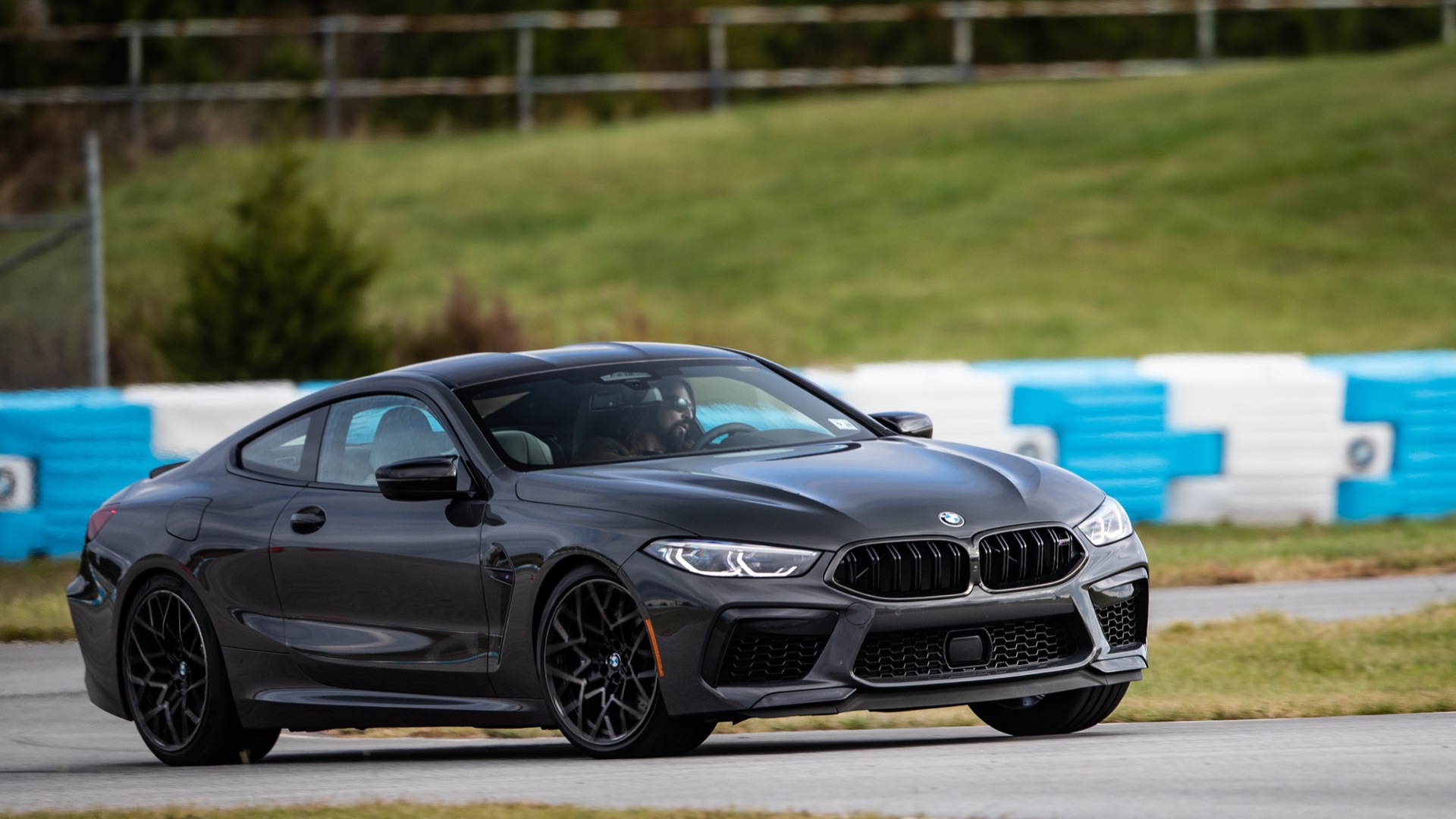
Last year, BMW revived the 8-Series and
with it came everything good about a large grand tourer: power, comfort,
estate-like creature comforts, cutting-edge technology, and lovely design for
both the coupe and convertible. For 2020, BMW added the M8 to prove that maybe,
just maybe, you can have it all.
Starting at $133,000 and quickly climbing into the supercar
price tier, the M8 is powered by the S63 4.4-liter twin-turbo V-8 that can make
up to 617 horsepower in Competition models. That is the most-powerful
production engine made by BMW’s M performance brand, but the most-impressive
thing about the M8 is how it can double as a track star and an effortless grand
tourer.
During a morning of tracking the M8 Competition coupe at the
BMW Performance Center in BMW’s North American home of Spartanburg, South
Carolina, two things became evident: the M8 was the quickest car on the course,
and, despite half a dozen other options from the Z4 roadster to the X4 M, it
was the car I wanted to get into again and again.
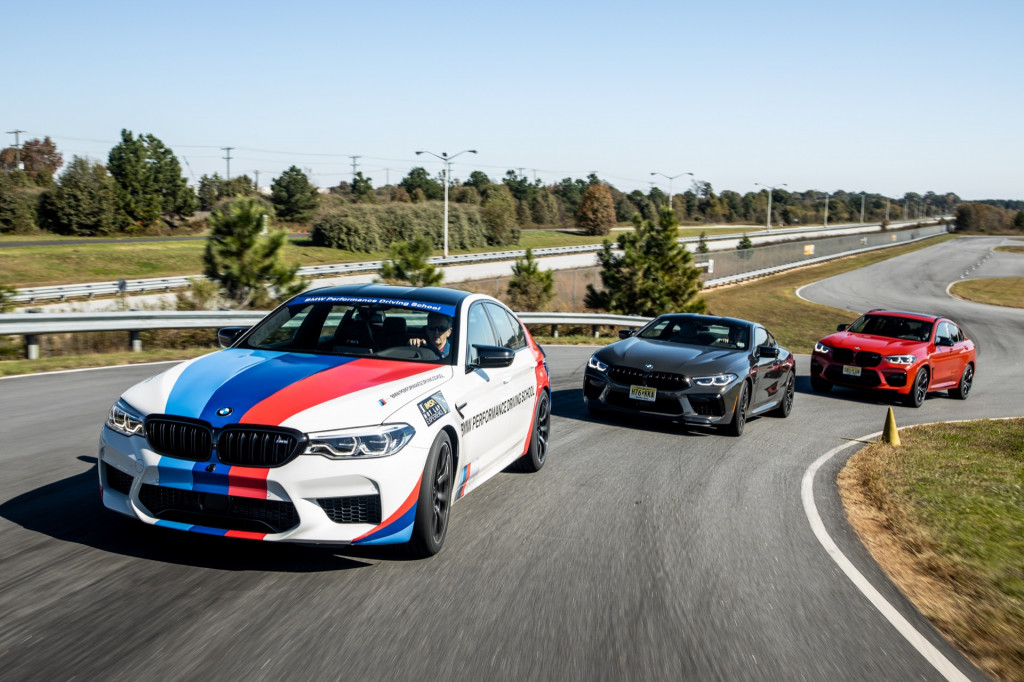
Fortunately, I could, thanks to an additional engine oil
cooler and transmission oil cooler dissipating the heat made from playing cat
and mouse with the instructor’s M5.
Those coolers allow for more sustained performance driving, which is what the
M8 is all about.
While we didn’t reach the top speed of 155 mph (the
available M Driver’s Package increases it to 189 mph), the M8 moved with the
quickness of a car half its size. Nearly as long as the M5, this large coupe
sits low and stays planted with heavy assurance, yet the twin-turbo V-8 shrugs
off the 4,295-pound curb weight like a cape. The M8 comes as the Gran Coupe
four-door ($130,995), Coupe ($133,995), and Convertible ($143,495), and the
higher performance Competition trim is offered in any body style for $13,000
more. It starts at more than twice the price of the C8 Corvette and finishes in the Acura NSX range.
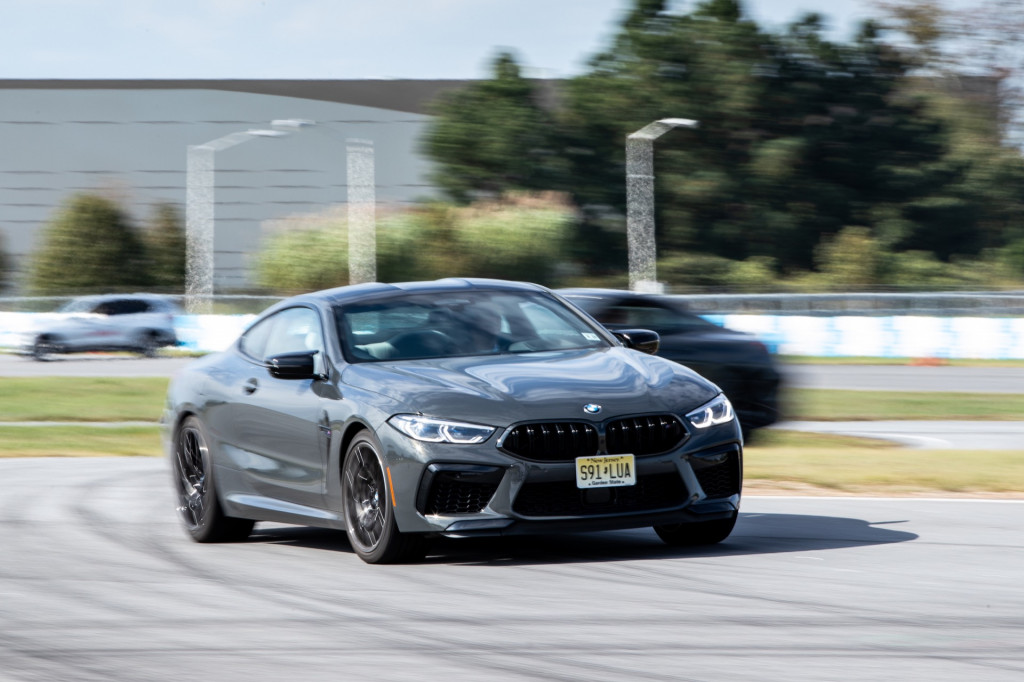
2020 BMW M8 Competition
The Coupe looks and performs better than the droptop. It has
a long nose, a snub rear, and small triangular rear windows. It looks like
a Mustang
Bullitt, stretched and pinched at the rear. Big 20-inch alloy wheels, 9.5
inches wide up front and 10.5 inches in back, complete the muscular, minimalist
profile. It looks like what would happen if a misbehaving muscle car got sent
away to a European military academy; it emerges as sophisticated and compliant
but is angry as hell inside and has a point to prove.
The point is this: this bad boy can handle whatever you
throw at it.
Since it was a lead-follow format behind a pro, I didn’t use
launch control but did take advantage of the simplified drive-mode setup.
Drivers can set up the M1 and M2 buttons on the steering wheel with the
settings they like. Press the Setup button to choose Road, Sport, or Track
modes (the last of which automatically shuts off the nav screen and
radio) for the suspension damping, braking response, steering feedback,
and all-wheel-drive system settings, then save two versions of those settings
in the two M buttons. BMW had the M1 button ready for track duty, so I simply
pushed it.
Coming out of a low-speed hairpin into a swtichback and then
a long curve that welcomed high speeds, the M8 kept its footing. The
all-wheel-drive system delivers the 553 pound-feet of torque to the rear wheels
unless the system senses tire slip and needs an assist from the front axle. In
track driving, it mostly stays in rear-wheel drive, where the electronically locking
differential then distributes torque to the rear wheel with the most grip.
There’s a lot going on, but the driver rarely notices, and if you really want
to oversteer you can shut off the dynamic stability control altogether and make
it rear-wheel drive only.
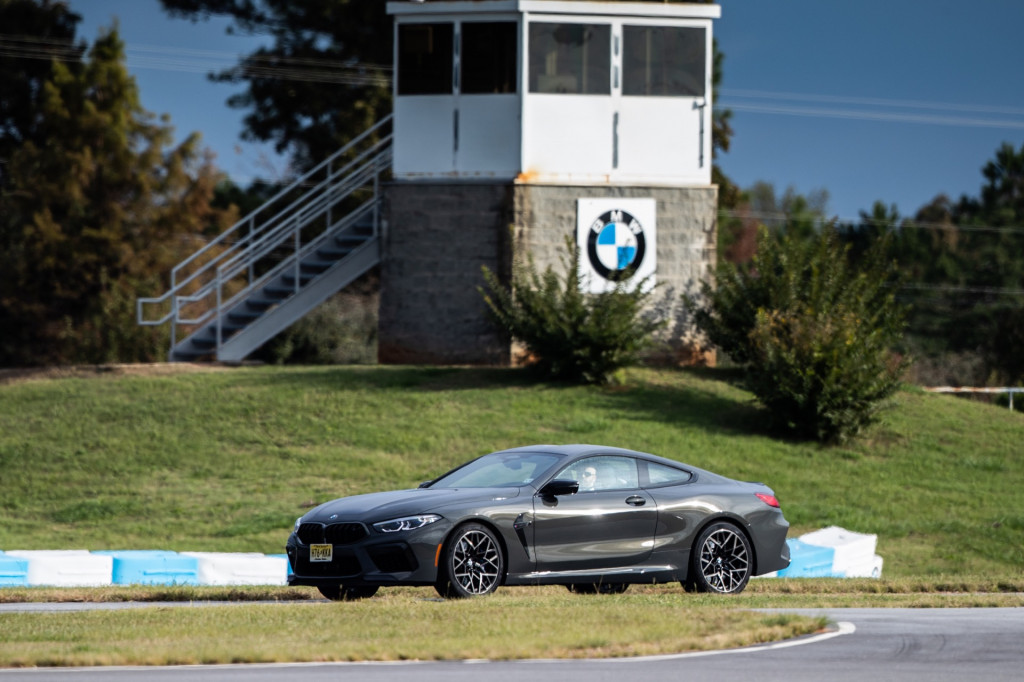
Pedal travel was longer during hard braking into the
upward-approaching corkscrew than I expected, and it wasn’t because the M
Compound disc brakes were cooked. These were some of the first laps of the day.
The six-piston calipers up front grab 15.6-inch rotors, and the single piston
in the rear grabs 15-inch rotors, so there was never any doubt. It wasn’t as
sensitive as expected, likely because the brake-by-wire system was still tuned
to Comfort, not Sport.
The one thing about all these settings that give the M8
multiple personalities is having the time to configure it to your driving style
and the driving demands.
The steering can also be modulated in Comfort and Sport
modes. Out of the low-speed bends where time is lost or gained before the
sweeping carousel, the steering of the M8 was a joy. The thick wheel can be
heavy but precise, with the tension of the road matching the tension in my
forearms.
Straightline acceleration is the M8's most-impressive trait.
The S63 twin-turbo V-8 paired to the 8-speed automatic transmission ubiquitous
in BMW’s lineup generates 600 hp (617 hp in Competition models) and 553
pound-feet of torque between 1,800 and 5,600 rpm. The twin turbochargers
nestled in the V-8 help provide gut-dropping acceleration from a stop, good
enough to go 0-60 mph in 3.1 seconds (3 flat for Competition models). Paddle
shifters let you dig a bit deeper into the rev band, whereas the automatic will
shift just before the V-8’s 6,000-rpm horsepower peak in Track mode. The
automatic is quick and smooth, taking the M8 up to the electronically limited
top speed of 155 mph, or an unrestrained 189 mph with the M Driver’s
Package.
The long wheelbase and low center of gravity, as well as
active damping and a double-wishbone front suspension and five-link rear,
combined to make zipping through the corkscrew a lesson in effortless weight
balance. There was no noticeable lateral weight movement, which kept the M8 on
course hurtling forward. Later, on the single-lane hilly roads outside of
Spartanburg, the suspension’s Comfort mode made it a comfy long-range
cruiser.
Unlike the Audi
R8 or Acura
NSX or the McLaren 570 or other supercars priced in the M8’s
stratosphere, the M8 has many more practical considerations and everyday
uses.
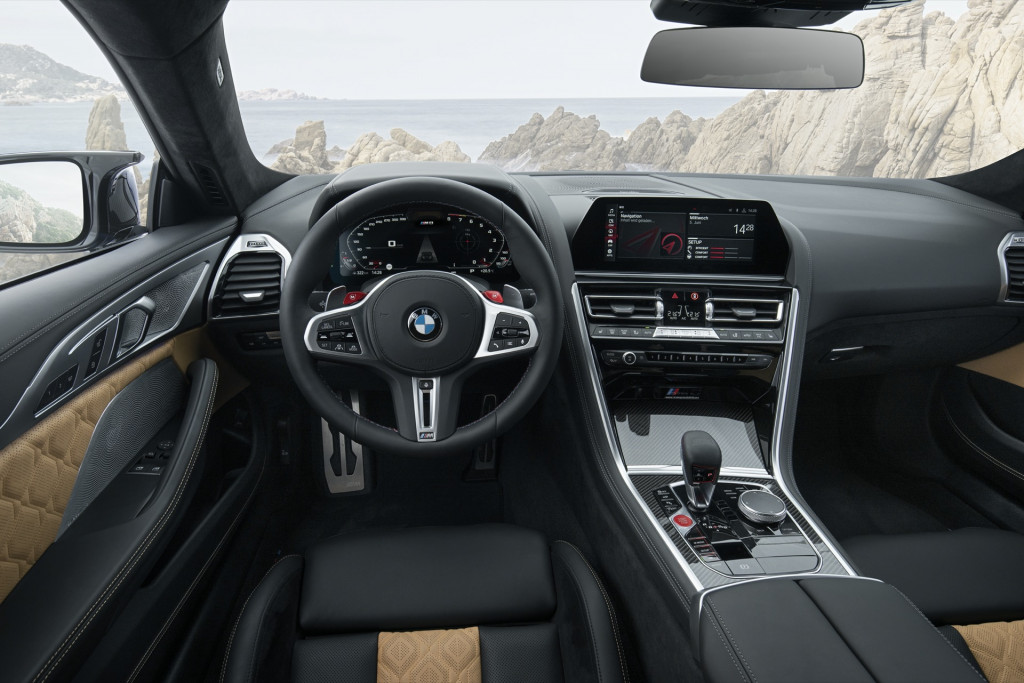
2020 BMW M8
It’s swaddled in comfort and adorned in luxury. Heated
leather front seats feature 16-way power adjustments with 4-way lumbar support.
Leather on the dash complements the carbon-fiber trim on the dash, doors, and
console. The hefty steering wheel and door armrests are heated for maximum
cruising comfort. The standard 12.3-inch digital instrument cluster pushes the
tach and speedo out to the fringe, opening up the center for the navigation map
and, on the right, twin torque and horsepower gauges. The 10.3-inch touchscreen
features iDrive 7.0, which is easier to use than the many-layered iterations
before it.
The rear seat is not one of those practical considerations,
but since most performance competitors don’t even have them, it could be an
edge. The rear can squeeze in passengers to lose their lunch during a quick
show-off run around the block, but it would probably ruin the fun on a double
date. The seats fold down to open up the trunk and its 14.8 cubic feet of cargo
volume (convertible is 12.4 cubic feet). The M8 is comfortable for road trips,
both in the spaciousness of the cabin and in the ride quality. Supercars can’t
do that, and the M8 can still hit 60 mph in 3.0 seconds.
The M8 proves that for those with the means, you can have it
all, in coupe, convertible, or even Gran Coupe form. With that many styles,
it’ll still be a rarity out in the wild.
by Robert Duffer
http://www.boscheuropean.com
No comments:
Post a Comment